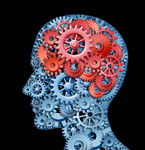Scientific American: Brain’s circadian clock disrupted in depressed people
Major or clinical depression seems to alter the genes that regulate sleep and waking
May 14, 2013
Disrupted sleep is so commonly a symptom of depression that some of the first things doctors look for in diagnosing depression are insomnia and excessive sleeping. Now, however, scientists have observed for the first time a dysfunctional body clock in the brains of people with depression.
People with major depression, also known as clinical depression, show disrupted circadian rhythms across brain regions, according to a new study published today (May 13) in the journal Proceedings of the National Academy of Sciences. Researchers looked at post-mortem brain samples from mentally healthy donors and compared them with those of people who had major depression at the time of their death.
They found that gene activity in the brains of depressed people failed to follow healthy 24-hour cycles.


